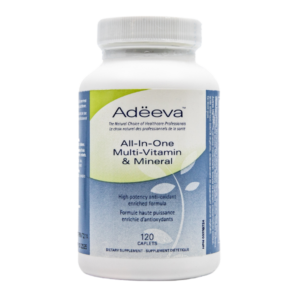
Selenium Supplementation Improves Hashimoto’s thyroiditis, Immune and Heart Function
Source: Main Reference: journal Thyroid (Feb 16, 2024)
Lifestyle Medicine Update (February 27, 2024)
Hashimoto’s thyroiditis is the most common cause of an underactive thyroid problem in developed countries, affecting about 1 in 1,000 men and 4 in 1,000 women in their lifetime. Hashimoto’s thyroiditis is an autoimmune disease whereby the body makes antibodies that attack the thyroid cells (destroying them), which impairs their ability to synthesize and secrete thyroid hormone.The ensuing deficiency in thyroid hormone results in a slower metabolism, with weight gain, decreased energy, dry skin, brittle hair and a host of other unpleasant signs and symptoms. (1) It also increases risk of heart attack if left untreated. (2)
Over the years studies have suggested that selenium supplementation may be helpful in managing Hashimoto’s Thyroiditis. This culminated into a systematic review on this subject that was published in journal “Thyroid”, in February 2024. In their review of 35 studies involving patients with Hashimoto’s thyroiditis the researchers reported that selenium supplementation was significantly associated with decreased blood levels of TSH in patients not taking thyroid hormone medication. Lower levels of TSH mean that the thyroid gland is working better and thus requires less THS stimulation to synthesize and secrete thyroid hormone. So, in hypothyroidism (underactive thyroid), the lower the TSH level the better. Patients using selenium supplements showed this important outcome – a lower TSH level – meaning better thyroid gland function was occurring. In many of the studies selenium supplementation also helped to lower the level of the antibodies that attack the thyroid gland (thyroid peroxidase antibodies – TPOAb). This is another important outcome – lower auto-antibody levels. And selenium supplementation also lowered blood levels of a key free radical marker (malondialdehyde). This is important because free radicals can also damage the thyroid gland, making this condition worse.
Importantly, no adverse effects were noted among the patients taking selenium supplements to help manage their thyroid condition. The typical doses were from 80 to 400 mcg per day of selenium supplementation. These authors stated, “Our study suggests that selenium supplementation is safe and holds potential as a disease-modifying factor for Hashimoto thyroiditis–associated hypothyroidism.” (3, 4) In addition to supporting thyroid function, a brilliant review paper on selenium in inflammation and immunity was published in 2012 in the journal Antioxidant Redox Signalling. In short, these researchers provide detailed evidence, from experimental and human clinical studies, of the importance the of selenium supplementation in preserving more optimal immune function, especially as we age. (5) Better immune function translates into a lower risk of life-threatening infections (like pneumonia) as well as cancer. Other studies have shown that selenium supplementation can also help to prevent congestive heart failure, as we saw in a large recent Swedish study, which combined selenium supplementation with CoQ10. (6)
Finally, an extensive review of the anti-cancer effects of selenium was published in 2020 in the journal Antioxidants (Basel), which highlighted the multi-faceted ways in which selenium supplementation has been shown to block cancer development and progression in experimental studies. (7) Taken together, my feeling is that most adults would benefit from getting 200 mcg per day of selenium from a high potency multiple vitamin and mineral. It’s one more step you can take to support your immune system, your antioxidant defences against free radicals, as well as supporting your heart and thyroid function and much more.
I have provided links to the research papers cited in this update, in the text below.
References
- https://www.ncbi.nlm.nih.gov/books/NBK459262/#:~:text=The%20incidence%20is%20estimated%20to,as%20compared%20with%20dizygotic%20twins
- https://www.mayoclinic.org/diseases-conditions/hashimotos-disease/symptoms-causes/syc-20351855
- https://www.mdedge.com/endocrinology/article/267897/pituitary-thyroid-adrenal-disorders/selenium-supplementation-shows?ecd=WNL_EVE_240221_mdedge
- https://pubmed.ncbi.nlm.nih.gov/38243784/
- https://www.ncbi.nlm.nih.gov/pmc/articles/PMC3277928/#:~:text=Dietary%20selenium%20(%5DSe)%2C%20mainly,immune%20responses%20and%20chronic%20inflammation.
- https://www.ncbi.nlm.nih.gov/pmc/articles/PMC9363287/
- https://www.ncbi.nlm.nih.gov/pmc/articles/PMC7023255/#:~:text=Moreover%2C%20studies%20in%20vitro%20and,cell%20migration%2C%20invasion%20and%20angiogenesis.&text=Anticancer%20effect%20of%20selenium%20may,and%20pathways%20in%20the%20cell.
Recommended Supplements

Dr. James Meschino
ABOUT THE AUTHOR
Dr. James Meschino, DC, MS, ROHP, is an educator, author, and researcher having lectured to thousands of healthcare professionals across North America. He holds a Master’s Degree in Science with specialties in human nutrition and biology and is recognized as an expert in the field of nutrition, anti-aging, fitness, and wellness as well as the author of numerous books.


